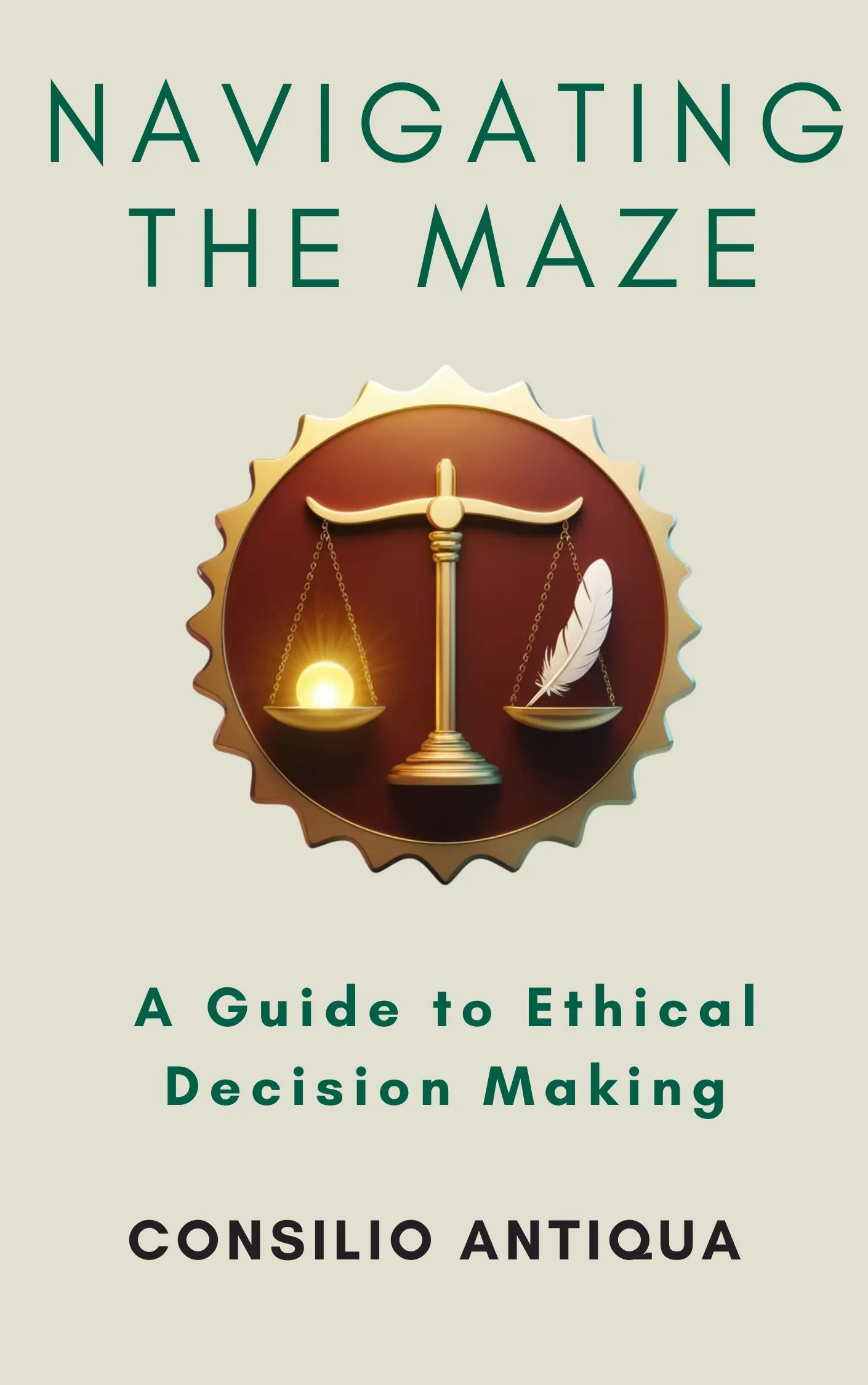
Navigating the Maze | 13: The Role of Emotion and Bias in Ethical Decision Making
13: The Role of Emotion and Bias in Ethical Decision Making
Ever found yourself in a pickle, unsure if your gut feeling is leading you down the right path? Maybe you had to choose between helping a friend and potentially jeopardizing your own work situation, or perhaps you faced a moral dilemma where the "right" answer felt incredibly fuzzy. We've all been there. It's in these moments, where our emotions and our sense of what's right collide, that ethical decision-making gets really interesting.
Let's be honest, we often like to think of ethics as this super logical, Spock-like process. But the truth is, our feelings play a huge role in how we see situations and the choices we make. Think of it like this: our emotions are like these colorful lenses we wear, sometimes making things appear brighter and more hopeful, other times making everything seem a bit darker and more uncertain. Understanding how these emotional lenses work is key to making choices that not only feel right in our hearts but also align with our values.
Emotions: The Heart of the Matter (and Sometimes the Headache)
Emotions are powerful, no doubt about it. They can push us to act with kindness and integrity, like when we see someone in need and feel a surge of empathy that compels us to help. But they can also mess with our judgment, especially when negative emotions like fear or anger take over. Imagine a doctor who's incredibly compassionate, fighting for their patient's well-being. But if that same doctor is burnt out and stressed, they might unintentionally overlook a patient's needs just to get through the day. It's a reminder that our emotions can be both our compass and our blind spot.
Sneaky Biases: The Mental Shortcuts That Trip Us Up
Now, let's talk about those sneaky little things called biases. These are like mental shortcuts our brains take, often without us even realizing it. They can warp how we see the world, leading us to make choices that aren't exactly ethical.
One common bias is called confirmation bias. It's like when you have a favorite sports team, and you only see the amazing plays they make, conveniently ignoring all the fumbles. Similarly, if a boss thinks an employee isn't doing well, they might only notice their mistakes, forgetting all the times they rocked it.
Then there's self-serving bias, where we're like, "I'm awesome, and if something goes wrong, it's definitely not my fault!" This can make us a bit overconfident and blind to how our actions might affect others. Think of a salesperson who uses pushy tactics but justifies it because they're hitting their targets, not considering how those tactics might make customers feel.
We also have biases like the availability heuristic, where we rely on the most recent or memorable examples that pop into our heads. If you just heard about a company doing something shady, you might start thinking all companies are like that, which isn't necessarily true.
Steering Through the Emotional Maze: Tips for Making Better Choices
The good news is that we're not doomed to be puppets of our emotions and biases. We can learn to manage them and make more thoughtful choices. Here's the deal:
Hit the Pause Button: Before you jump into a decision, take a moment to check in with yourself. Ask, "What am I feeling right now? Why?" If you're feeling stressed or angry, maybe take a deep breath or step away for a bit. This pause can help you approach the situation with a clearer head.
Get Different Perspectives: Don't just rely on your own point of view. Talk to people with different backgrounds and experiences. They might see things you haven't considered. For example, if you're making a decision that affects your team, getting input from different team members can help you avoid blind spots.
Challenge Your Beliefs: Don't be afraid to question your own assumptions. Ask yourself, "Why do I believe this? Is there another way to look at it?" This can help you fight confirmation bias and make more balanced decisions.
Practice Mindfulness: Things like meditation or focused breathing can help you become more aware of your emotions and thoughts. When you're more aware, you can better manage your emotional responses and make more thoughtful choices.
Culture Matters: It's important to remember that emotions and how we express them can be different across cultures. In some cultures, it's totally normal to show your feelings openly, while in others, it might be seen as a sign of weakness. This can affect how people make ethical decisions. If you're a leader working with people from different cultures, it's important to understand these differences so you can be more empathetic and make better choices.
Understanding how emotions and biases influence our ethical choices is a big step towards becoming more morally sound. By practicing mindfulness, seeking different perspectives, and challenging our own assumptions, we can navigate our emotional landscape more effectively. This allows us to make decisions that truly reflect our values, leading to more ethical outcomes in all areas of our lives.
Think About It:
Take a moment to reflect on a recent decision you made. What emotions were you feeling at the time? Do you think any biases might have crept in? How might you approach the situation differently now? This kind of self-reflection can help you become more aware of the ethical aspects of your decision-making process.
